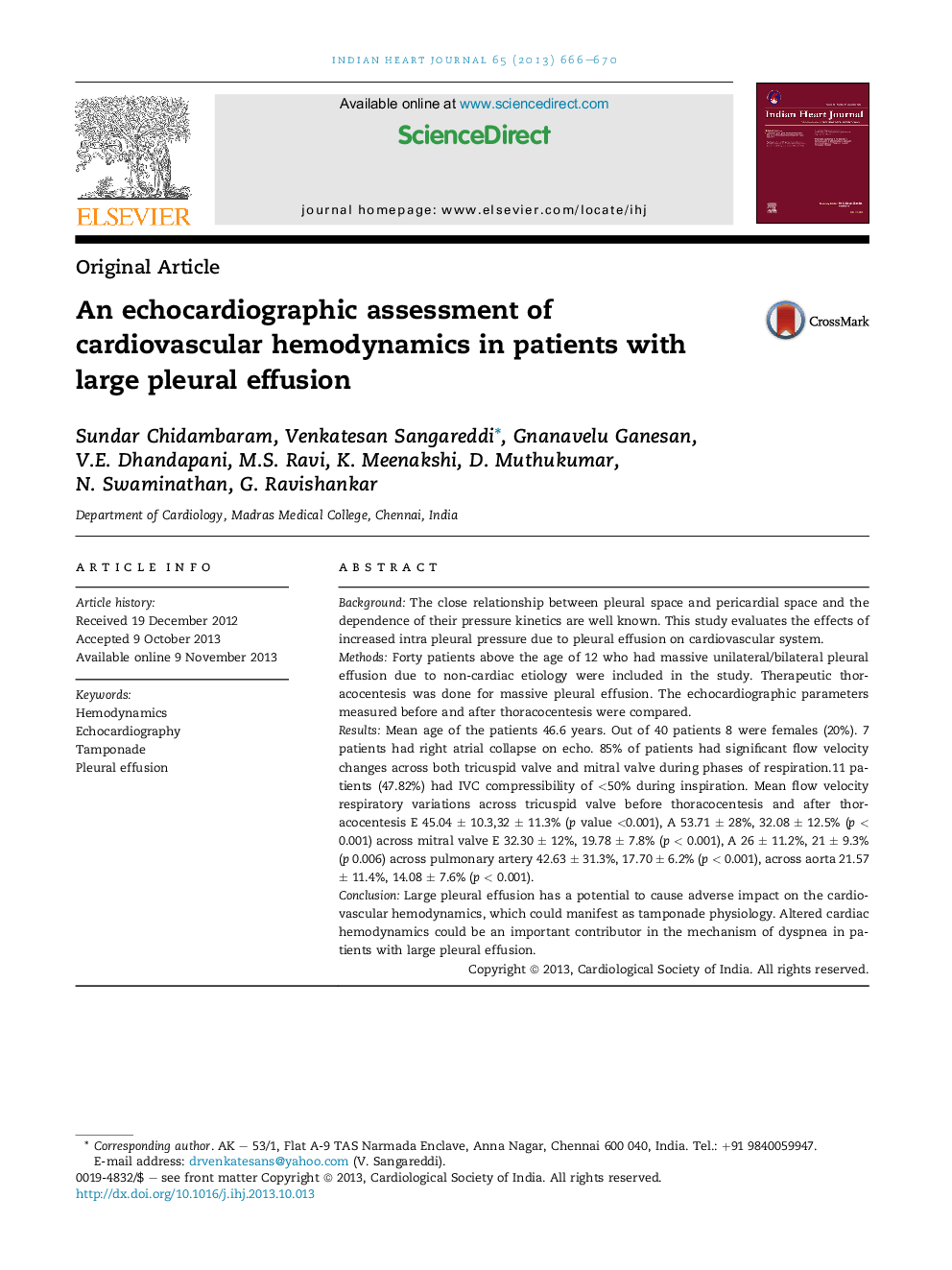| Article ID | Journal | Published Year | Pages | File Type |
|---|---|---|---|---|
| 2927798 | Indian Heart Journal | 2013 | 5 Pages |
BackgroundThe close relationship between pleural space and pericardial space and the dependence of their pressure kinetics are well known. This study evaluates the effects of increased intra pleural pressure due to pleural effusion on cardiovascular system.MethodsForty patients above the age of 12 who had massive unilateral/bilateral pleural effusion due to non-cardiac etiology were included in the study. Therapeutic thoracocentesis was done for massive pleural effusion. The echocardiographic parameters measured before and after thoracocentesis were compared.ResultsMean age of the patients 46.6 years. Out of 40 patients 8 were females (20%). 7 patients had right atrial collapse on echo. 85% of patients had significant flow velocity changes across both tricuspid valve and mitral valve during phases of respiration.11 patients (47.82%) had IVC compressibility of <50% during inspiration. Mean flow velocity respiratory variations across tricuspid valve before thoracocentesis and after thoracocentesis E 45.04 ± 10.3,32 ± 11.3% (p value <0.001), A 53.71 ± 28%, 32.08 ± 12.5% (p < 0.001) across mitral valve E 32.30 ± 12%, 19.78 ± 7.8% (p < 0.001), A 26 ± 11.2%, 21 ± 9.3% (p 0.006) across pulmonary artery 42.63 ± 31.3%, 17.70 ± 6.2% (p < 0.001), across aorta 21.57 ± 11.4%, 14.08 ± 7.6% (p < 0.001).ConclusionLarge pleural effusion has a potential to cause adverse impact on the cardiovascular hemodynamics, which could manifest as tamponade physiology. Altered cardiac hemodynamics could be an important contributor in the mechanism of dyspnea in patients with large pleural effusion.
